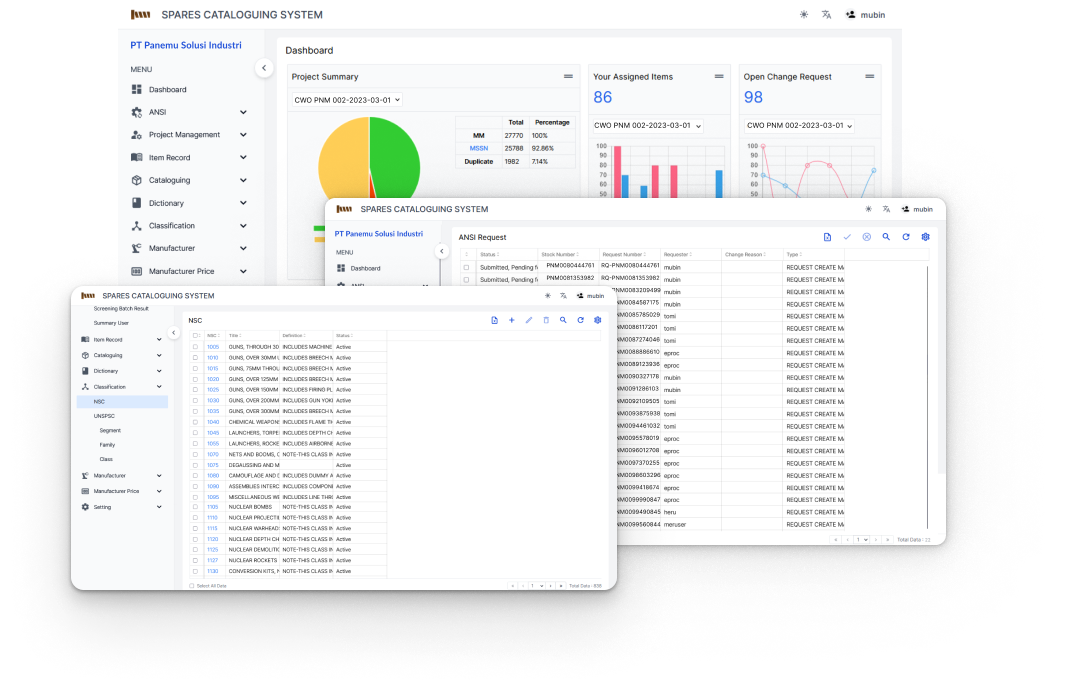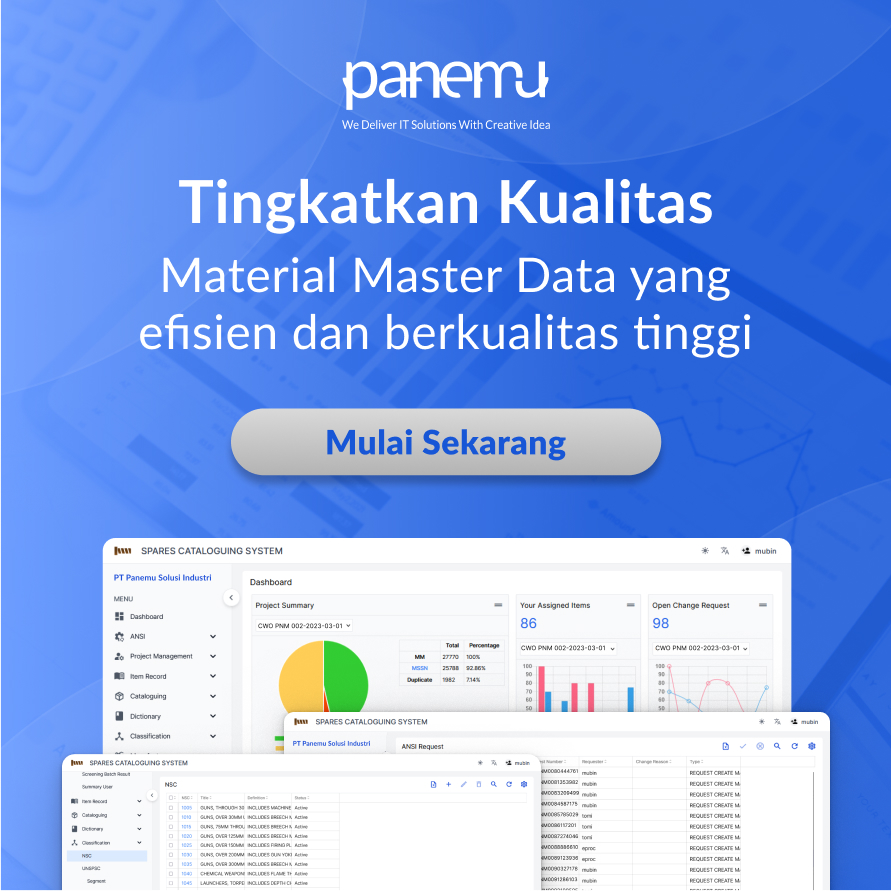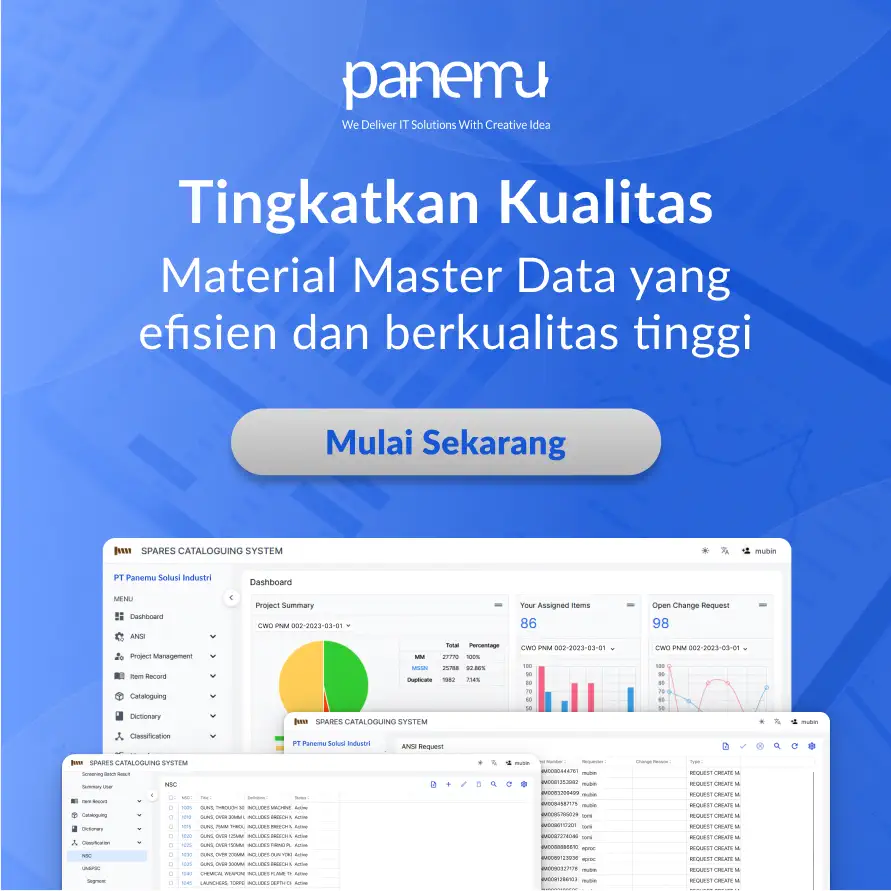Have you ever experienced difficulties in finding and managing supply data in your company? If yes, then you are not alone. In a business world that continues to grow rapidly, data management is an important aspect that can affect the efficiency and productivity of a company. In this context, the concept of Master Data becomes very relevant and vital.
In this article, we will discuss in full and in depth the concept of Master Data in the context of Supply Cataloging. We will explain why a deep understanding of this concept is important, as well as outline the steps that can be taken to implement an effective system for managing data supply. Let's start by understanding the problems that often occur related to data management.
Data Management Problems in Supply Cataloging
Managing data in supply cataloging is often a complex and time-consuming task. Companies often face challenges in collecting, storing, and managing supply data in a structured and efficient way. One common problem is inconsistency in data format, quality, and classification. This can hinder a quick and accurate decision-making process.
In addition, data duplication and information inaccuracy are also problems that are often encountered. When the same data is stored in multiple systems or databases, it is difficult to determine which data is correct and accurate. The existence of duplication of data can also disrupt the overall integrity and quality of data.
Apart from these problems, there are also challenges in terms of classification and codification of supply data. Without clear and systematic standards, it is difficult to ensure that supply data is grouped and classified with high consistency and accuracy. This is why a deep understanding of the Master Data concept is important in the context of supply cataloging.
Why Understanding the Master Data Concept in Supply Cataloguing is Important?
A good understanding of the Master Data concept can provide significant benefits in managing data supply cataloging. By applying this concept well, companies can achieve higher efficiency, improve data quality, reduce duplication, and ensure consistency in data classification and codification. This will help companies make better decisions and maximize the value of their data.
The Master Data concept basically involves the process of compiling and managing a centralized data supply. This involves identifying and establishing authentic data sources, establishing consistent standards and formats, and ensuring that data is available accurately, verified, and properly integrated across enterprise systems and processes.
In addition, the Data Master concept also enables companies to adopt best practices in data management, such as implementing data quality standards (such as ISO 8000) and classification systems (such as NATO Supply Classification and United Nations Standard Products and Services Code). By ensuring data quality and consistency, companies can optimize data value and support better decision making.
Steps to Implement the Master Data Concept in Supply Cataloging
In order to successfully implement the Master Data concept, the following steps can be taken:
- Evaluation of Needs and Objectives: First of all, identify the company's needs and objectives regarding data supply management. What do you want to achieve with Master Data implementation? This is important for directing efforts and ensuring a clear focus.
- Identification of Data Sources: Identification of authentic and relevant data supply sources that will form the basis for the Master Data. Make sure the data used is verified, has integrity, and is up-to-date.
- Standardize Data Format and Quality: Establish consistent data format and quality standards to ensure data is available in a form that is easy to access and understand. Apply relevant data quality standards, such as ISO 8000, to ensure data quality and integrity.
- Classification and Codification of Data: Implement an appropriate classification system, such as the NATO Supply Classification or the United Nations Standard Products and Services Code, to categorize and classify data in a consistent manner. This will facilitate the search and analysis of data.
- Data Integration: Make sure the data in various systems or databases are well integrated. This can be done through the use of a centralized data management system or by linking existing systems through application integration.
- Data Cleansing and Duplication Removal: Carry out the data cleansing process regularly to ensure that the stored data is clean and accurate. Identify and remove duplicate data to maintain data integrity and quality.
In an effort to implement the Master Data concept effectively, companies can take advantage of the solutions provided by Panemu. Panemu is a company that provides solutions related to supply cataloging data management. They offer the best application in this field, namely Spares Cataloging System (SCS).

IMPROVE YOUR MASTER DATA MANAGEMENT, GET SCS NOW!
SCS is an application that has full features for the process of cataloging data supply. This application adopts ISO 8000 data quality standards, the NATO Supply Classification system, and the United Nations Standard Products and Services Code (UNSPSC). In SCS, companies can carry out data cleansing processes, data duplication checkers, and data duplication deletion easily.
In addition, Panemu also has a team of catalogers who are reliable and experienced in supply cataloging. This team can assist in the implementation and processing of SCS accurately, and has been trusted by various companies in Indonesia.
You need those articles to improve your business productivity
The Best Strategy to Build a Reliable Supply Cataloging System Why Supply Cataloguing Is A Profitable Long Term Investment Rules in the Supply Cataloguing System in Companies that Must Be Understood Practical Steps to Begin the Supply Cataloging Process Understanding Supply Cataloging: An Important Foundation in Supply Chain Management
In this article, we have discussed the importance of understanding the concept of Master Data in the context of supply cataloging. This concept plays a crucial role in effective and efficient data supply management. By implementing the Data Master concept, companies can improve data quality, reduce duplication, and maximize the value of their data.
Panemu as a solution related to supply cataloging can help companies implement the Master Data concept properly. By using the Spares Cataloging System (SCS) application provided by Panemu, companies can optimize the data supply management process accurately and efficiently.
To find out more about the solutions offered by Panemu, visit panemu.com. If you want to implement SCS and get help from a reliable team of catalogers, contact us via telephone or WhatsApp by CLICK HERE Don't hesitate to access OUR WEBSITE for more information about SCS and how its implementation can provide the best solution for managing supply cataloging data in your company.


